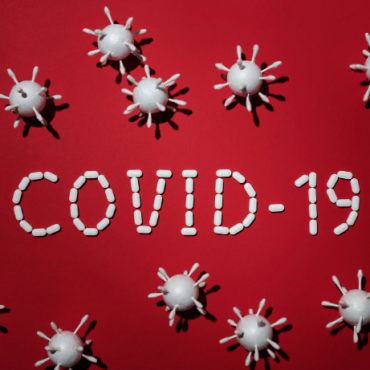-
play_arrow
On The Street On The Air | Kaya 959
Archaeology shows how ancient African societies managed pandemics
Shadreck Chirikure, University of Cape Town
Every so often, a pandemic emerges that dramatically alters human society. The Black Death (1347 – 1351) was one; the Spanish flu of 1918 was another. Now there’s COVID-19.
Archaeologists have long studied diseases in past populations. To do so, they consider a wide array of evidence: settlement layout, burials, funerary remains, and human skeletons.
For example, because of archaeologists we know that the damaging impact of epidemics prompted the abandonment of settlements at Akrokrowa in Ghana during the early 14th century AD. About 76 infant burial sites at an abandoned settlement that now forms part of the Mapungubwe World Heritage site in the Limpopo Valley of South Africa suggest a pandemic hit the people living there after 1000 AD.
Archaeological and historical insights also expose some of the strategies that societies adopted to deal with pandemics. These included burning settlements as a disinfectant and shifting settlements to new locations. Social distancing was practised by dispersing settlements. Archaeologists’ findings at Mwenezi in southern Zimbabwe also show that it was a taboo to touch or interfere with remains of the dead, lest diseases be transmitted in this way. In the late 1960s, some members of an archaeological dig excavating 13th century house floors in Phalaborwa, South Africa, refused to keep working after encountering burials they believed were sacred. They also worried that the burials were related to a disease outbreak.
Social distancing and isolation have become watchwords during the COVID-19 pandemic. From archaeology, we know that the same practices formed a critical part of managing pandemics in historical African societies. In what is Zimbabwe today, the Shona people in the 17th and 18th centuries isolated those suffering from infectious diseases – such as leprosy – in temporary residential structures. This meant that very few people could come into contact with the sick. In some cases, corpses were burnt to avoid spreading the contagion.
Humans have a propensity to relax and shift priorities once calamities are over. Data collected by archaeologists, that show how indigenous knowledge systems helped ancient societies in Africa deal with the shock of illness and pandemics, can help remind policy makers of different ways to prepare modern societies for the same issues.
Social distancing and isolation
Research at the early urban settlement of K2, part of the Mapungubwe World Heritage site, has thrown significant light on ancient pandemics.
The inhabitants of K2 (which dates back to between AD1000 and AD1200) thrived on crop agriculture, cattle raising, metallurgy, hunting and collecting food from the forest. They had well developed local and regional economies that fed into international networks of exchange with the Indian Ocean rim. Swahili towns of East Africa acted as conduits.
Archaeological work at K2 uncovered an unusually high number of burials (94), 76 of which belonged to infants in the 0-4 age category. This translated into a mortality rate of 5%. The evidence from the site shows that the settlement was abruptly abandoned around the same time as these burials. That means a pandemic prompted the community’s decision to shift to another settlement.
Shifting to another region of Africa, archaeological work at early urban settlements in central and southern Ghana identified the impact of pandemics at places such Akrokrowa (AD950 – 1300) and Asikuma-Odoben-Brakwa in the central district of Ghana.
These settlements, like others in the Birim Valley of southern Ghana, were bounded by intricate systems of trenches and banks of earth. Evidence shows that after a couple of centuries of continuous and stable occupation, settlements were abruptly abandoned. The period of abandonment appears to coincide with the devastation of the Black Death in Europe.
Post-pandemic, houses were not rebuilt; nor did any rubbish accumulate from daily activities. Instead, the disrupted communities went to live elsewhere. Because there are no signs of long term effects – in the form of long periods of hardship, deaths or drastic socioeconomic or political changes – archaeologists believe that these communities were able to manage and adapt to the pandemic.
Analysis of archaeological evidence reveals that these ancient African communities adopted various strategies to manage pandemics. These include burning settlements as a disinfectant before either reoccupying them or shifting homesteads to new locations. African indigenous knowledge systems make it clear that burning settlements or forests was an established way of managing diseases.
The layout of settlements was also important. In areas such as Zimbabwe and parts of Mozambique, for instance, settlements were dispersed to house one or two families in a space. This allowed people to stay at a distance from each other – but not too far apart to engage in daily care, support and cooperation. While social coherence was the glue that held society together, social distancing was inbuilt, in a supportive way. Communities knew that outbreaks were unpredictable but possible, so they built their settlements in a dispersed fashion to plan ahead.
These behaviours were also augmented by diversified diets that included fruits, roots, and other things that provided nutrients and strengthened the immune system.
Africa’s past and the future of pandemics
There were multiple long-term implications of pandemics in these communities. Perhaps the most important was that people organised themselves in ways that made it easier to live with diseases, managing them and at the same time sticking to the basics such as good hygiene, sanitation and environmental control. Life did not stop because of pandemics: populations made decisions and choices to live with them.
Some of these lessons may be applied to COVID-19, guiding decisions and choices to buffer the vulnerable from the pandemic while allowing economic activity and other aspects of life to continue. As evidence from the past shows, social behaviour is the first line of defence against pandemics: it’s essential this be considered when planning for the latest post-pandemic future.![]()
Shadreck Chirikure, Professor in Archaeology, University of Cape Town
This article is republished from The Conversation under a Creative Commons license. Read the original article.
Written by: Zuko
Afropolitan Archaeology shows how ancient African societies managed pandemics South Africa
Similar posts
-
MORE ARTICLES

PA Gauteng Premier candidate Kenny Kunene outlines his vision for the province

SARB seizes assets of Markus Jooste’s alleged former mistress

Letoya Makhene celebrates her daughter Nubia’s 18th birthday

An estimated R984 million for the extended deployment of SANDF personnel across Africa

Mpho Popps shares how his mom met his “white, Danish” stepfather
-
QUICK LINKS
UpComing Shows

Feel Good
With Andy Maqondwana
Feel good about feeling good! That's exactly what The Feel-Good show is about. An escape from the negativity that surrounds us, indulging you in good feels. Pass it on to one and all. Spread the good feeling around Gauteng with Andy Maqondwana.
close
Kaya Biz
With Gugulethu Mfuphi
The world of business is simplified for you by Kaya Biz with Gugulethu Mfuphi. This fast-paced award-winning business show talks to the corporate giants as well as up and coming entrepreneurs about their wins and challenges. Gugulethu invites guests to offer their analyses of markets and economies, and also delves into issues of personal financial wellness. Kaya Biz airs Mondays to Thursdays 18h00 to 19h00.
close
Point of View
With Phemelo Motene
Point of View with Phemelo Motene delves into the day’s current affairs, touches on real issues that affect people’s daily lives and shares expert advice on questions posed by the audience. Mondays to Thursdays 20:00 to 22:00.
close
959 Music Weekdays
Kaya 959 Hits
Real. Familiar. Memorable. Kaya 959 brings you the music you know and love from our playlist. Uninterrupted. Thursdays 20h00 to 21h00
close
The Best T in the City
With T Bose
He has held it down in the world of mid-morning radio with the best music, riveting topics, brilliant mixes and interesting guests. Every weekday, The Best T proves why he is the BEST by connecting to you like only your bro or favourite uncle could. He lets his listeners dictate the songs they want to hear in the ever-popular Top 10 at 10, and his Three Teaspoons never run out. Catch The Best T in the City Mondays to Fridays from 09h00 to 12h00.
closeConnect with Kaya 959
DownLoad Our Mobile App
© 2024 Kaya 959 | On The Street On The Air











